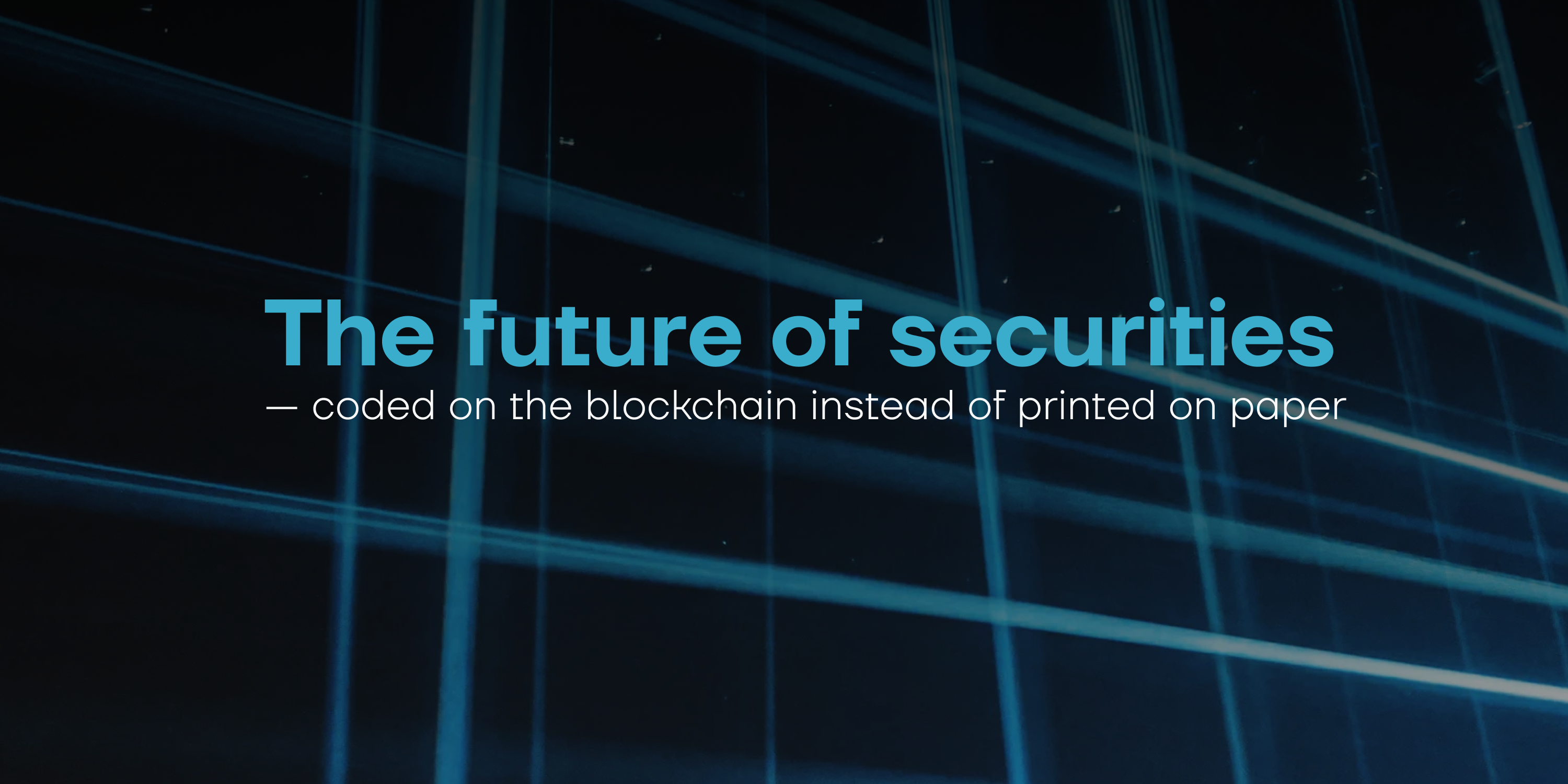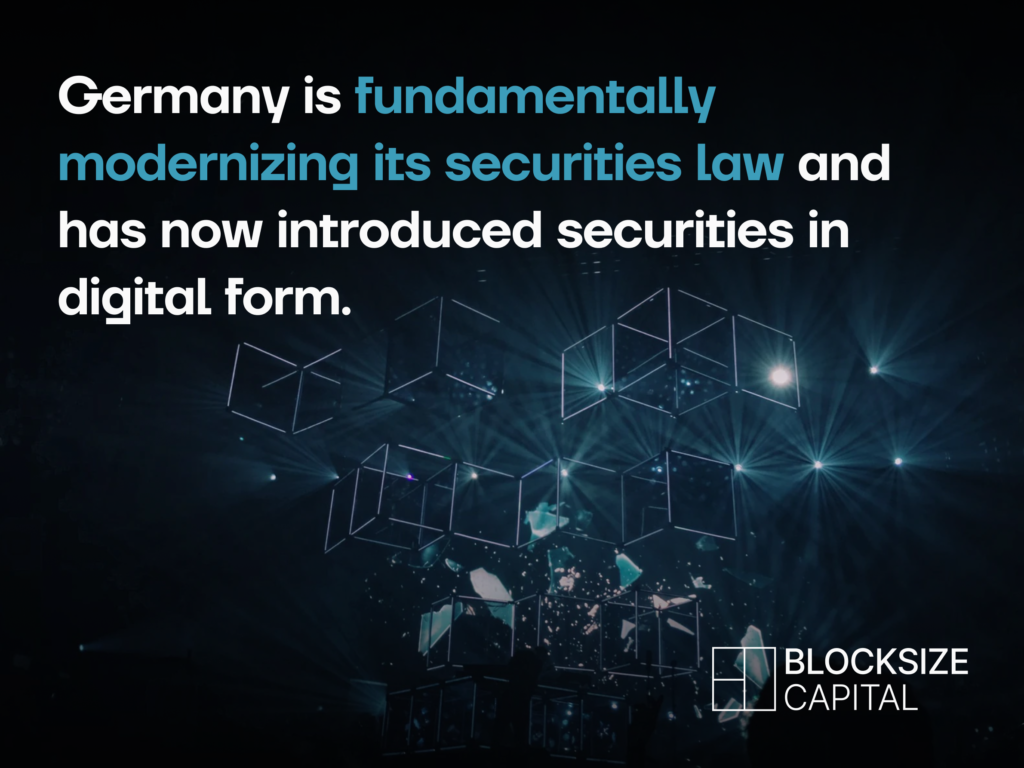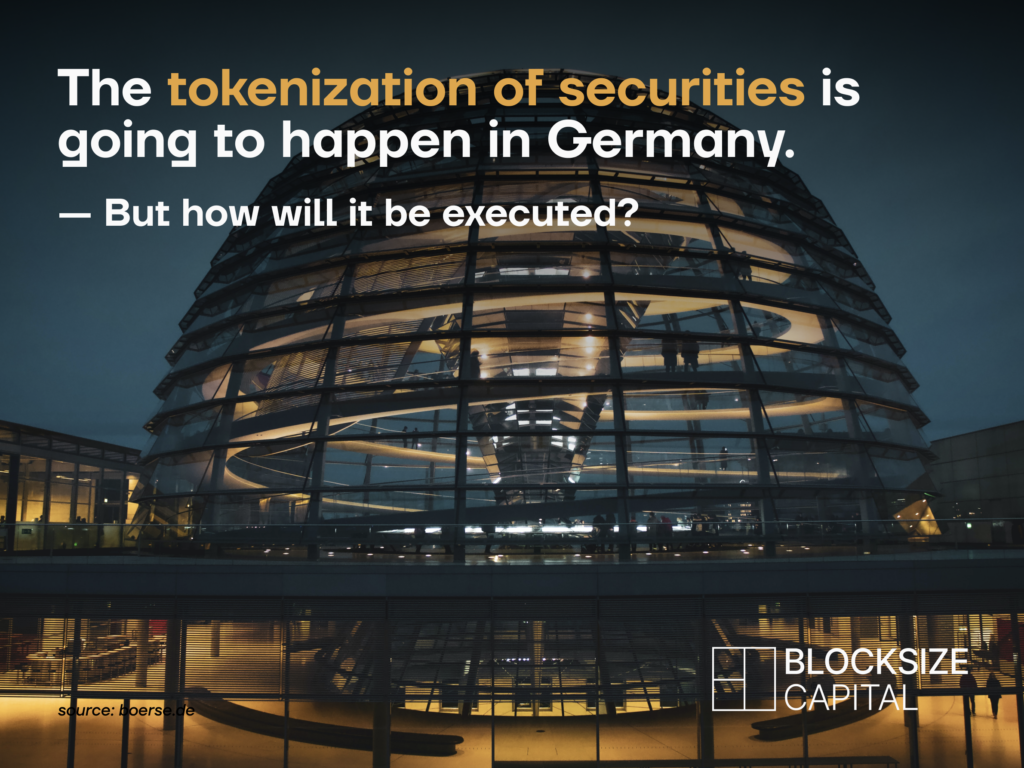The future of securities – coded on the blockchain instead of printed on paper?

by Jacqueline Winter
Paper is patient! – is a well-known saying and therefore it is used for thousands of years to keep important information and agreements.
But we are in the 21st century, and blockchain technology proves to be even more patient and provides far more security, speed, and execution possibilities. All that has to be done, is to adjust the legal framework which is mostly based on the paper standard. Germany, the country where the letterpress was invented, takes a leading position by opening up to blockchain technology and will partly replace the patient paper.
Germany is fundamentally modernizing its securities law and has now introduced securities in digital form.
The old-fashioned legal requirement, that securities must be securitized with a paper certificate is no longer necessary and securities now can be issued electronically by an entry in an electronic securities register. Two types of electronic securities are standardized in the new law. On the one hand, so-called central registersecurities will be introduced, which will be entered into a technology-neutral central register. On the other hand, the so-called crypto securities getting introduced, which are entered in a crypto securities register.Therefore the regulation is technology-neutral, and securities issued via blockchain are not being favored compared to other electronic forms of issuance. The technical innovation is that electronic securities are treated as property – with the intention that investors enjoy the same protection of property as with securities certificates.

The law on electronic securities (eWpG) came into force on June 10, 2021 after it was passed by the Bundestag on May 6, 2021 and announced in the Federal Law Gazette on June 9, 2021.
“With the establishment of digital securities, one of the central milestones of the federal government’s blockchain strategy is being implemented,” – Sarah Ryglewski, State Secretary at the Federal Ministry of Finance
With the previously required securities certificate being replaced by an entry in a securities register, it should be made clear that electronic securities are treated like property so that owners enjoy the same protection of property as with securities deeds.Existing, physical securities will now have the option of being converted into an electronic form. In most cases, however, the consent of all authorized persons is required to convert the security concerned to this electronic form. It is also required in the opposite case if electronic securities are to be replaced by securities issued in paper form. Viewed overall, however, electronic securities are proving to be a legally secure alternative, so that the classic paper form is likely to appear less and less.

The tokenization of securities and stocks is going to happen in Germany. But how will it be executed?
By using blockchain technology, securities and stocks can be digitized and displayed as tokens, in a process called tokenization.
As of now, it is just possible to tokenize rights, claims and demands that a share or security entails by using a Security Token Offering (STO). Similar to securities, the owners of a security token receive rights to a company or obligations under the law of obligations. The property claims and rights inherent in a token are clearly defined. They are sold by regulatory requirements.
The first important step is made, however, the scope of application of the eWpG that has now been resolved could be expanded so that the digital form would be possible for other parts of securities trading, such as stocks. It is to be hoped that the legislature will quickly expand the eWpG.
We believe this achieved milestone by the federal government is an important one to secure the competitiveness of Germany as a financial location. In many other European member states, the possibility of issuing electronic securities has already existed – in some cases for years.
What is the outlook and how big is the potential?
Ten trillion US dollars: This is how much the World Economic Forum estimates the value of assets that could be tokenized by 2029. According to Blockchain Center, there could be more than 1.4 trillion euros in tokenized assets in the European Union by 2024. An enormous potential for companies, investors, and the financial sector, and Germany is one of the pioneers in Europe when it comes to “tokenization”. With its blockchain strategy approved in September 2019 by the federal cabinet, it paved the way for the future of a token economy. The digital association Bitkom assessed the implementation of the strategy as positive, Germany is “on the right track”, says Bitkom President Achim Berg.
Blocksize Capital is leading this “right track” already specializing in trading digital assets and supporting customers with a comprehensive SaaS solution. Don’t be as patient as paper and get in contact with us to have a head start over your competitors.

